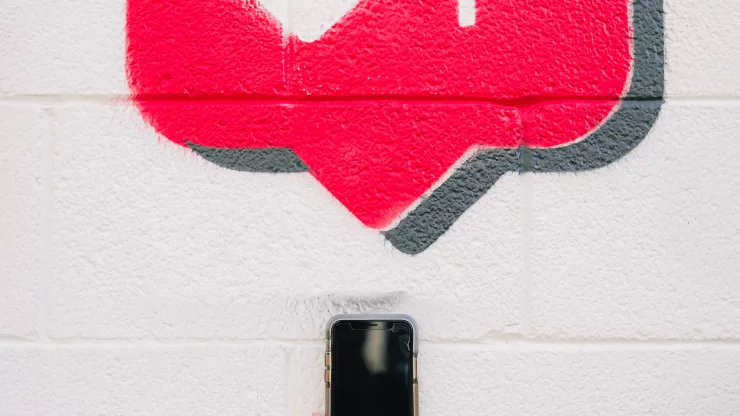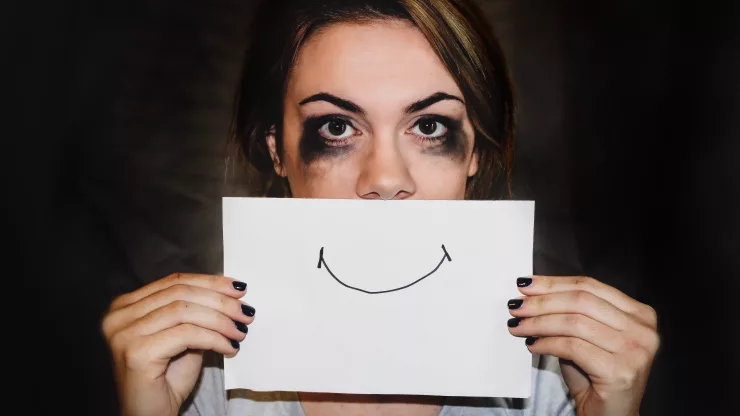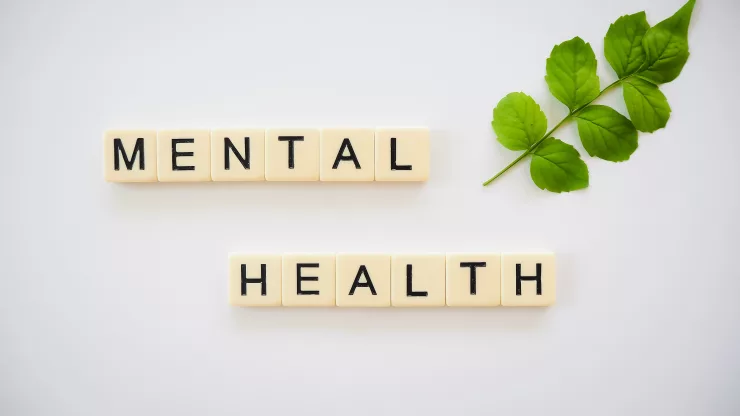Social anxiety can be a daunting experience for many, ranging from mild uneasiness in social situations to debilitating fear of interacting with others.
It can impact one’s personal and professional life, hindering their success and happiness.
Fortunately, there are simple practices that can help individuals overcome social anxiety and lead a more confident life.
In this article, we will explore these practices in detail and provide useful tips for overcoming social anxiety in different settings.
Jump to Section
Understanding Social Anxiety: Symptoms, Causes, and Triggers
Social anxiety is a mental health disorder characterized by an intense fear of social situations.
It can manifest in physical symptoms such as sweating, racing heartbeat, and nausea.
There are several common symptoms of social anxiety, including fear of judgment, self-consciousness, and avoidance of social situations.
The causes of social anxiety can vary, but it is often linked to genetics, environmental factors, and brain chemistry. Traumatic experiences, such as bullying or rejection, can also contribute to social anxiety.
Triggers that can worsen social anxiety include performance situations, such as public speaking or presentations, and unfamiliar or crowded social settings.
To better understand the triggers and symptoms of social anxiety, the following table provides an overview of common scenarios that may trigger social anxiety and associated symptoms.
| Triggers | Symptoms |
|---|---|
| Public speaking or presentations | Sweating, trembling, dry mouth, racing heartbeat |
| Meeting new people | Self-consciousness, blushing, difficulty making eye contact |
| Social gatherings or parties | Fear of judgment, avoidance, panicking |
| Group work or meetings | Difficulty speaking up, fear of being judged or criticized |
| Dating or romantic relationships | Excessive worry, fear of rejection, avoidance of intimacy |
Simple Practices to Overcome Social Anxiety
While social anxiety can feel overwhelming, there are simple practices that individuals can incorporate into their daily lives to manage and overcome it. The following practices have been proven effective in reducing social anxiety:
Practice 1: Mindfulness and Deep Breathing Techniques
Mindfulness and deep breathing techniques can help individuals manage anxiety symptoms in the moment. Mindfulness involves focusing on the present moment without judgment, while deep breathing techniques involve taking slow, deep breaths to calm the body.
To practice mindfulness, find a quiet space and focus on your breath. When your mind starts to wander, bring your attention back to your breath.
To practice deep breathing, inhale slowly through your nose for four seconds, hold for four seconds, and exhale slowly through your mouth for six seconds.
Practice 2: Exposure Therapy
Exposure therapy involves gradually exposing oneself to anxiety-provoking situations to build tolerance and reduce anxiety symptoms. This can involve starting with small, manageable steps and gradually increasing exposure to more challenging situations.
For example, if someone is anxious about public speaking, they may start by practicing their speech in front of a few trusted friends or colleagues before gradually increasing their audience size.
Practice 3: Cognitive Behavioral Therapy
Cognitive behavioral therapy (CBT) is a type of psychotherapy that helps individuals identify and change negative thought patterns and beliefs. CBT can be effective in reducing social anxiety by challenging negative self-talk and teaching individuals to reframe their thoughts in a more positive way.
Practice 4: Regular Exercise
Regular exercise has been shown to improve mood and reduce stress and anxiety. Incorporating exercise into your routine can help manage social anxiety symptoms and improve overall well-being.
The following table provides an overview of different types of exercise and their potential benefits for managing social anxiety.
| Type of Exercise | Potential Benefits |
|---|---|
| Yoga | Promotes relaxation and mindfulness |
| Cardiovascular exercise | Reduces stress and anxiety, improves mood |
| Weightlifting | Increases confidence and self-esteem |
Practice 5: Adequate Sleep and Good Nutrition
Adequate sleep and good nutrition are essential for overall well-being and can have a positive impact on social anxiety. Lack of sleep and poor nutrition can exacerbate anxiety symptoms and make it more difficult to manage social situations.
To promote good sleep hygiene, establish a regular sleep schedule and limit screen time before bed. To improve nutrition, aim for a balanced diet that includes fruits, vegetables, whole grains, and lean protein.
Support Systems and Professional Help
Having a strong support system can be beneficial for managing social anxiety. Friends, family, and colleagues can provide emotional support and encouragement.
If social anxiety is impacting your daily life, seeking professional help may be necessary. A mental health professional can provide therapy and medication management for social anxiety.
The following table provides an overview of different types of mental health professionals and their areas of expertise.
| Type of Mental Health Professional | Area of Expertise |
|---|---|
| Psychologist | Psychotherapy, diagnosis, and assessment |
| Psychiatrist | Medication management, diagnosis, and assessment |
| Social worker | Psychotherapy, case management, and advocacy |
| Counselor | Psychotherapy, diagnosis, and assessment |
Overcoming Social Anxiety in Different Settings
Social anxiety can present in different settings, such as work, social situations, and romantic relationships. The following sections provide tips for overcoming social anxiety in different settings.
Overcoming Social Anxiety at Work
To overcome social anxiety at work, try the following strategies:
- Practice assertiveness skills to communicate effectively.
- Attend work-related social events to build relationships.
- Set achievable goals and celebrate your accomplishments.
Overcoming Social Anxiety in Social Situations
To overcome social anxiety in social situations, try the following strategies:
- Join groups or clubs that interest you to meet like-minded people.
- Focus on your strengths and accomplishments instead of your fears.
- Challenge negative thoughts and beliefs about social situations.
Overcoming Social Anxiety in Romantic Relationships
To overcome social anxiety in romantic relationships, try the following strategies:
- Communicate your feelings and needs with your partner.
- Practice self-care and self-compassion.
- Seek professional help if needed.
Overcoming Social Anxiety in Public Speaking
To overcome social anxiety in public speaking, try the following strategies:
- Practice speaking in front of a mirror or recording yourself.
- Gradually increase exposure to public speaking.
- Focus on your message and the audience instead of your anxiety.
Empowering Yourself to Overcome Social Anxiety
Overcoming social anxiety is a journey that requires patience, persistence, and self-compassion. The following practices can help empower you to overcome social anxiety:
- Practice self-care and prioritize your well-being.
- Set realistic goals and celebrate your accomplishments.
- Challenge negative thoughts and beliefs.
- Embrace your strengths and weaknesses.
- Seek professional help if needed.
FAQ
What is social anxiety?
Social anxiety is a mental health disorder characterized by an intense fear of social situations.
What are the common symptoms of social anxiety?
Common symptoms of social anxiety include fear of judgment, self-consciousness, and avoidance of social situations.
How can mindfulness and deep breathing techniques help manage social anxiety symptoms?
Mindfulness and deep breathing techniques can help individuals manage anxiety symptoms in the moment by calming the body and mind.
What is exposure therapy?
Exposure therapy involves gradually exposing oneself to anxiety-provoking situations to build tolerance and reduce anxiety symptoms.
How can regular exercise help manage social anxiety?
Regular exercise has been shown to improve mood and reduce stress and anxiety.
When should I seek professional help for social anxiety?
If social anxiety is impacting your daily life, seeking professional help may be necessary. A mental health professional can provide therapy and medication management for social anxiety.

With a deep passion for personal development, Ben has dedicated his career to inspiring and guiding others on their journey towards self-improvement.
His love for learning and sharing knowledge about personal growth strategies, mindfulness, and goal-setting principles has led him to create My Virtual Life Coach.
Contact Ben at [email protected] for assistance.




